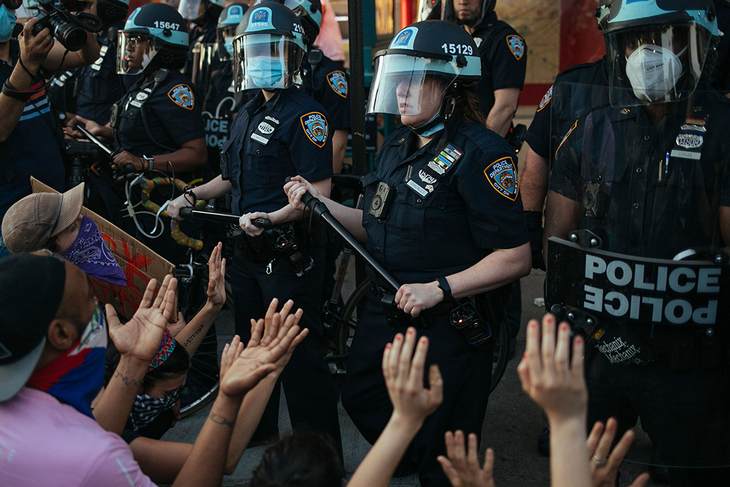 |
| AP Photo/Kevin Hagen |
The ancient Greeks created new words like “paradox” and “irony” to describe the wide gap between what people profess and assume, and what they actually do and suffer.
Remember the blind prophet Teiresias of ancient drama. In the carnage of Athenian tragedy he alone usually ends up foreseeing danger better than did those with keen eyesight.
After a catastrophic plague and endless war, ancient democratic Athens was stripped of its majestic pretensions. Soon it was conducting mass executions — on majority votes of the people.
Throughout history, revolutions often do not end up as their initial architects planned. The idealists who ended the French monarchy in 1789 thought they could replace it with a constitutional republic.
Instead, they sparked a reign of terror, the guillotine and mass frenzy. Yet the radicals who hijacked the original revolution and began beheading their enemies soon were themselves guillotined.
It was not democracy but rather the dictator Napoleon who put an end to French domestic unrest.
He assumed more powers than had the executed Bourbon king Louis XVI, who had set off the revolution in first place.

The COVID-19 epidemic, the nationwide mass quarantine, and the massive protests, looting, rioting and arson that all followed the police killing of George Floyd have resulted in similar paradoxes.
Social distancing and mandated lockdowns for months have been the source of endless fighting between the people and their governments. Red and blue states often adopted diametrically opposite policies.
But the massive demonstrations and rioting saw hundreds of thousands of protesters jammed together and often without masks. That mass disobedience to quarantining will teach us, better than any university modeling, whether the virus spikes or is indifferent to thousands who congregate in the streets.Read the rest from Victor Davis Hanson HERE.
If you like what you see, please "Like" us on Facebook either here or here. Please follow us on Twitter here.

No comments:
Post a Comment